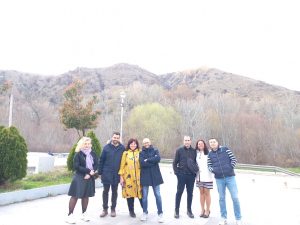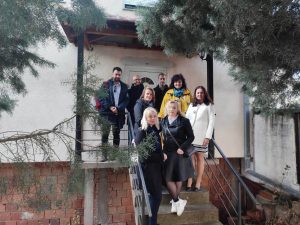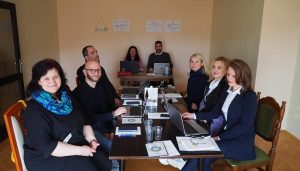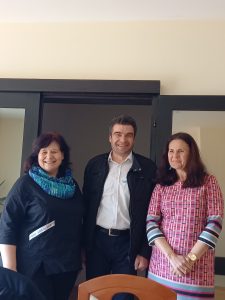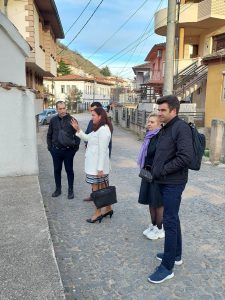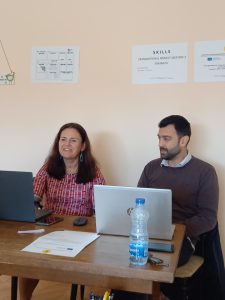Erasmus+ project experience in circular agriculture
All project partners participated in North Macedonia meeting of the international project “Strengthening Key Competencies in Agriculture for Value Chain Knowledge” (SKILLS), which took place in March, 2023. According to the program of the meeting, on the first day SKILLS coordinator dr. Dimitris Sarris (University of the Aegean, Greece) presented the main objectives of the meeting and the issues that are most important in the implementation of the project. The representatives of the project from the Faculty of Bioeconomy Development (VMU AA) prof. dr. V. Atkočiūnienė, assoc. prof. dr. G. Vaznonienė and dr. I. Kazlauskienė presented the achieved results of the activities of the first work package. The researchers discussed the results of the analysis of macroeconomic indicators on agriculture, the circular economy and circular agriculture good practices, the organization of the questionnaire survey and the research results, presented the involvement of all countries in the implementation of the activities of the first work package.
Dr. Antonio Stasi from the DARe organization (Distretto Agroalimentare Regionale SCRL) in Italy provided ideas and discussed the activities of the second work package, which include the analysis of national green job advertisements, the review of national documents related to the circular economy and the preparation of training slides for students and teachers on the intended topics. For example, green knowledge; green solutions in agriculture; local food; 0 mile products; green sales. The main focus was on the organization of focus groups on green skills, as this is a relatively new topic in all countries.
Dr. Marijana Dimitrova, representative of the NGO, Association for Internationalization of Education and Science (INTER-EDU) in North Macedonia, presented the activities under the third work package. There was a discussion about the preparation of a practical guide for “Agri-Lingua Practicum” teachers, where explanations of green solutions, circular agriculture terms with photos will be presented. On the second day of the meeting, project partners shared insights on how to improve the mentioned publication, and main author of the practical guide, dr. Marijana Dimitrova made suggestions to the partners of each country who could be responsible for what.
During the continuation of the meeting, SKILLS project coordinator Dimitris Sarris presented the working plan of activities of the next 6 months of the project.
After conducting a questionnaire survey of farmers, entrepreneurs, students, members of agricultural associations in Lithuania, Greece, Romania and Italy “Circular agriculture” it was found that the respondents have quite a lot of knowledge about circular agriculture and apply some of the principles of circular agriculture in their activities. However, their knowledge of circular agriculture is still superficial, little based on scientific research results. Most of the respondents so far only know the basic principles of circular agriculture, which they learned in higher education institutions or through self-education. The respondents themselves admitted that they lack knowledge and competence in the field of circular agriculture, especially in the social, environmental, economic and political context of their country.
Most of the respondents emphasized that the principles of circular agriculture should be taught in universities, emphasized the importance of both theoretical and practical knowledge, examples of good practice. Teaching the principles of circular agriculture should become part of lifelong learning. The principles of circular agriculture must be discussed both in the family and in primary education, as well as in universities, as well as in special training and online pages. However, self-study is still preferred and is the most accessible method. It was also established that prior education on issues of circular agriculture does not provide a basis for a detailed understanding of what circular agriculture is, what its benefits are and the possibilities of applying it on farms. There is also a lack of independent training provider courses on circular agriculture topics, seminars, and training. Such a situation can affect the lack of well-trained specialists and the lack of acquisition of high-quality, up-to-date knowledge and at the same time, a low level of orientation of strategic documents and political decisions to circular agriculture. Supplementing the education system with circular agriculture studies would provide opportunities to increase public awareness in this area. Greater public interest in the development of circular agriculture would also initiate strategic and political decisions promoting the implementation of the principles of circular agriculture at a more rigorous level.






